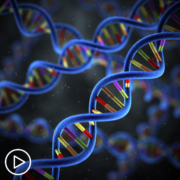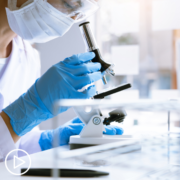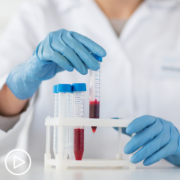What Key Ways Is Early Detection of Stomach Cancer Delayed?
What Key Ways Is Early Detection of Stomach Cancer Delayed? from Patient Empowerment Network on Vimeo.
How is early detection of gastric cancer commonly delayed? Expert Dr. Joo Ha Hwang from Stanford Medicine discusses symptoms that patients may experience, whether some patients may be asymptomatic, risk factors, and proactive patient advice for early detection.
[ACT]IVATION Tip
“…each person should know what their risk for gastric cancer is, and we know the main risk factors are your ethnicity, especially your immigrant status. So if you’re a recent immigrant from a high incidence area, then you’re at risk. And then number two, have you had H. pylori infection? Again, if you’re a recent immigrant from an area that’s endemic with H. pylori, you should get tested for H. pylori. And number three, talk with your physician about your risk factors and determine whether or not you weren’t having endoscopic screening or surveillance, especially if you have any symptoms whatsoever.”
See More from [ACT]IVATED Gastric Cancer
Related Resources:

|

|

|
Transcript:
Lisa Hatfield:
Dr. Hwang, what are the key challenges in the early detection of gastric cancer, and how is your research addressing these challenges?
Dr. Joo Ha Hwang:
Well, the key challenge in detecting early gastric cancer is that there are no symptoms, or the symptoms are very generalized. You can have some vague abdominal pain, your appetite might change a little bit, but we don’t see symptoms until the later stages of gastric cancer when it’s no longer curable. So the real key challenge is to diagnose it at an early stage when it’s still curable and what we’re doing in terms of our research, and then the research community in general, is one, trying to identify patients who are at particularly high risk for developing gastric cancer.
And we have a pretty good idea on who that is. And it’s essentially recent immigrants from high-risk areas such as East Asia, Eastern Europe, Western, South America. There are populations where we know there’s a high incidence of gastric cancer. And in many of these locations, they do endoscopy for early gastric cancer. And so the key really is to identify who is at higher risk for developing gastric cancer and then having them undergo endoscopic screening to further determine what their risk factor is to develop gastric cancer. And then those who are at extremely high risk, they should be on what we call a surveillance program for that.
Lisa Hatfield:
Do you have an activation tip for people for that particular question?
Dr. Joo Ha Hwang:
Yeah. I would say a couple activation tips. I know we’re trying to stick to just a few key ones, but number one would be know your risk for gastric cancer. So each patient, each person should know what their risk for gastric cancer is, and we know the main risk factors are your ethnicity, especially your immigrant status. So if you’re a recent immigrant from a high incidence area, then you’re at risk. And then number two, have you had H. pylori infection?
Again, if you’re a recent immigrant from an area that’s endemic with H. pylori, you should get tested for H. pylori. And number three, talk with your physician about your risk factors and determine whether or not you weren’t having endoscopic screening or surveillance, especially if you have any symptoms whatsoever.










